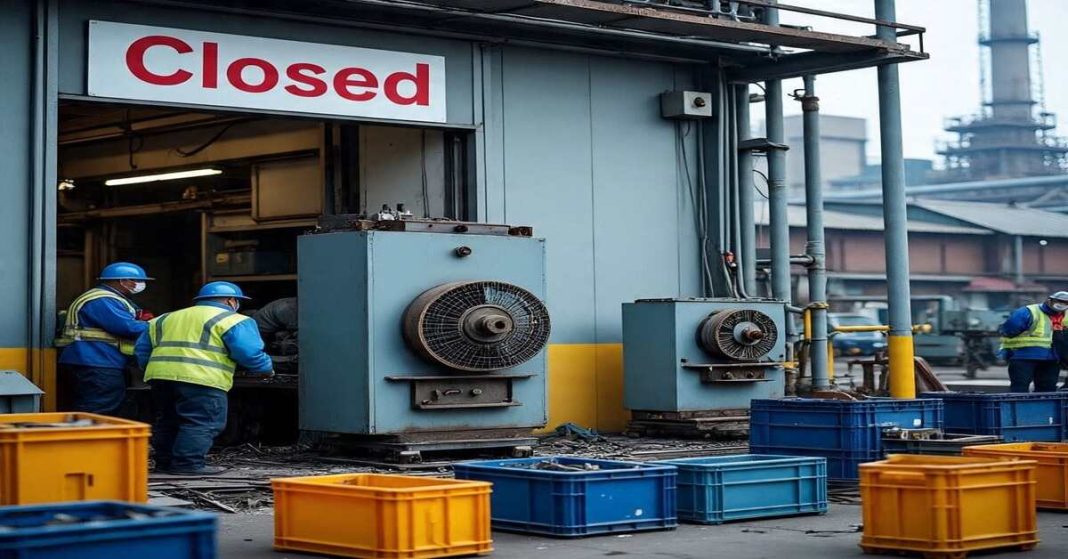EU firms are expecting more shutdowns and suffering losses as China continues to hold a tight grip on rare earth exports despite a July agreement to fast-track shipments to the bloc, the European Union Chamber of Commerce in China said on Tuesday.
Automakers in Europe and elsewhere faced production delays and widespread shutdowns after Beijing introduced export controls on some rare earths and related magnets following tariffs announced by U.S. President Donald Trump.
China’s Tight Grip on Rare-Earth Exports
China refines and processes the vast majority of rare earths, which are in demand from automakers, the defence industry, and others. China has defended its export curbs as not targeted at any specific country.
Rare-earth metals are a group of minerals critical for technologies such as electric vehicles, defense systems, renewable energy gear, electronic metals, magnetic materials, etc. And China happens to dominate much of its global processing and refining.
In April 2025, Beijing imposed the Export Licensing Requirements for seven rare-earth and related magnets used in automotive, defense, and energy sectors. These rules require exporters to get a permit from the Ministry of Commerce, and this has significantly slowed the shipments.
Impact On European Industries
There has been increasing pressure on the European Union to implement its Critical Raw Material Act to diversify and expand the supplies, improve the domestic processing, and build the much-needed strategic stockpiles. Automakers are also being forced to delay production as chipmakers are warning of parts shortages.
During a July summit between European Commission President Ursula von der Leyen and Chinese President Xi Jinping, China agreed to fast-track licences for critical raw materials for European companies, although it fell short of the EU’s wish for China to grant licences for a longer period or to scrap them for exports to the bloc.
Licence approvals have slowed just two months after the summit, and the chamber said it was starting to receive an increase in complaints and requests for help from its members.
China’s Rare Earth Restrictions Begin to Affect Production
China’s restrictions on rare earth minerals are looming, with firms around the world warning of shortages and production delays as a result. China originally announced in April it would suspend the export of some… pic.twitter.com/Aex9k4wABI
— Knightsbridge Research (@KBR_Intel) June 4, 2025
Only about one quarter of 140-plus license applications submitted have been approved, and delays are still visible. And compliance burden remains high, and many companies are reporting losses.
Chinese customs data show rare earth magnet exports, including to Europe, have soared since June following the deals agreed with the U.S. and the European Union.
Estimates have put China’s share of rare-earth processing share up to 90%, a critical point in global supply chains. For companies and countries alike, the main aim is to reduce this dependency for the survival of their businesses. Rare-earth elements have now become an important chip in global power plays.
Automakers and chipmakers in Europe rely heavily on the steady flows of these rare-earth materials. Any halt of restriction in the supply means delay in production, mounting costs, and disrupting supply chains. Beijing’s tight control, followed by the imposition of U.S. tariffs by the Trump administration, has turned the rare-earth elements into a geopolitical tool.
EU Response and Strategic Measures
The European Parliament has condemned China’s restrictions as coercive. They have described it as a risk to the bloc’s economic security. In response, Brussels has accelerated efforts to implement its Critical Law Material Act, which aims to diversify the sourcing beyond China, expand domestic mining and refining capacity, and build strategic stockpiles of critical minerals. However, experts believe that this transition will take years.
Read more: India-U.S. Relationship Reset: A Tale of Personal Egos or Cold Strategy?
Meanwhile, the industry insiders are calling for emergency relief to avoid prolonged shutdowns. Production lines in Germany, France, and Italy are already slowing down with some temporary shutdowns due to shortages of rare-earth magnets used in EV motors. Semiconductor firms are also warning of shortages if supply remains disrupted through Q4 2025.
Europe’s defence sector is also vulnerable to this supply chain. China, however, insists its export controls are non-discriminatory, but European firms report that less than a quarter of export licence applications have been approved.
Rare Earth as Geopolitical Tool
Many companies are pre-emptively filing paperwork in anticipation of long delays, yet losses are already mounting. People believe that Europe is paying the price for years of ignoring the strategic chokehold of China’s rare-earth. Analysts believe that without rare-earth independence, the EV transition could stall.
It seems as if the rare Earth is no longer just about the resources. Whoever maintains its control will have a decisive edge in the war of technology, industry, and geopolitics.














